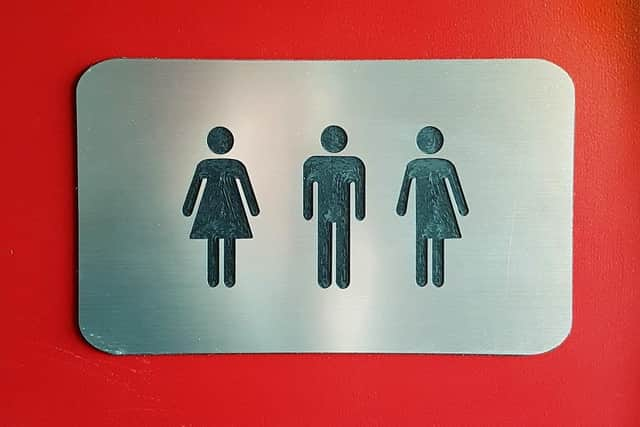Period bill which expunges any mention of women set to be debated in Northern Irish parliament on International Women’s Day
and live on Freeview channel 276
The bill is called the Period Products (Free Provision) Bill, and is being driven forward by SDLP MLA Pat Catney.
It calls upon the Department of Health to make tampons available for free to the public, and suggests that this would apply in schools, colleges, universities, and health facilities.
Advertisement
Hide AdAdvertisement
Hide AdThe SDLP has now said that the bill’s next stage will come before MLAs tomorrow.


However, as the News Letter has previously revealed, the bill had been drafted in such a way that it deliberately avoids any mention of females.
This has been done to reflect the idea that boys and men have periods, too.
An SDLP press release quotes Mr Catney as saying: “No one should face going to school, college or work worried about not being able to afford vital health products to manage their period.
Advertisement
Hide AdAdvertisement
Hide Ad“That’s why I have been working hard to pass legislation that would create a duty on government and public agencies to provide period products for free.
“I am delighted that we have received such positive support from so many people, particularly from young activists who have provided immense support to me in my role as the bill sponsor.
“They have been an incredible source of inspiration, knowledge and direct experience that has shaped this legislation for the better ...
“This is an example of the power of positive politics and what we can achieve when we put people first.”
Advertisement
Hide AdAdvertisement
Hide AdThe total removal of the terms ‘women’, ‘girls’ and ‘females’ from the roughly-2,000-word bill is the result of campaigning by transgender activists.
In the past decade, their demands have emerged from relative obscurity to become an integral part of progressive political discourse, with schools, companies, and governments all adopting policies which have been drafted in consultation with such activists.
Transgender activists and their supporters believe that the previously accepted norms of gender are wrong, and instead of two fixed genders there is an unknown number of them, which people can adopt regardless of biology.
For example, they believe men can give birth and women can father children, because having male genes and organs does not make you a man, and having female ones does not make you a woman.
Advertisement
Hide AdAdvertisement
Hide AdLast September Labour leader Kier Starmer was asked on TV what he thought of the idea that only women have cervixes.
He said this is “not right”, and is “something that should not be said”.
As the bill’s explanatory notes put it, “in line with modern drafting practice for gender neutral drafting ... the bill applies to anyone who menstruates (including transgender and non-binary persons), and not just to women and girls”.
More from this reporter:
Advertisement
Hide AdAdvertisement
Hide AdClick here: ‘Ukraine invasion is horrific – but that does not make it genocide’ says UK holocaust memorial boss
——— ———
A message from the Editor:
Thank you for reading this story on our website. While I have your attention, I also have an important request to make of you.
With the coronavirus lockdowns having had a major impact on many of our advertisers — and consequently the revenue we receive — we are more reliant than ever on you taking out a digital subscription.
Advertisement
Hide AdAdvertisement
Hide AdSubscribe to newsletter.co.uk and enjoy unlimited access to the best Northern Ireland and UK news and information online and on our app. With a digital subscription, you can read more than 5 articles, see fewer ads, enjoy faster load times, and get access to exclusive newsletters and content.
Visit
https://www.newsletter.co.uk/subscriptionsnow to sign up.
Our journalism costs money and we rely on advertising, print and digital revenues to help to support them. By supporting us, we are able to support you in providing trusted, fact-checked content for this website.
Ben Lowry, Editor